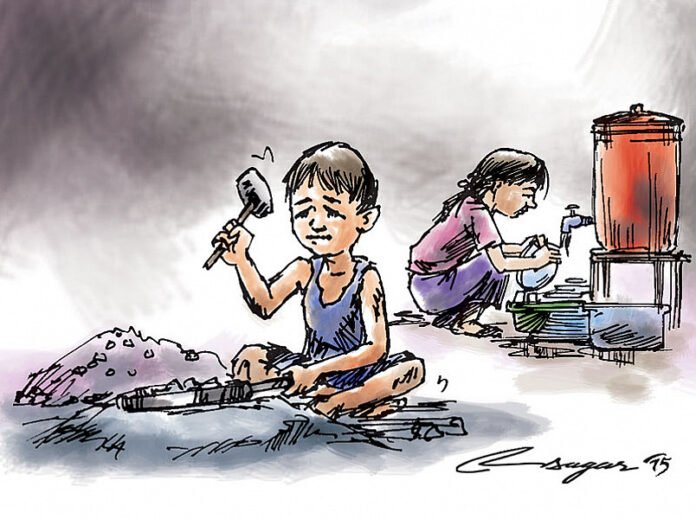September 04, Colombo (LNW): The Cabinet has given the green light to a proposal aimed at strengthening the legal framework governing the employment of minors by significantly increasing the penalties imposed on those who breach existing labour regulations.
The move will involve amending key provisions of the Employment of Women, Young Persons and Children Act No. 47 of 1956, a decades-old law that sets out strict limits on the employment of individuals under the age of 18.
The Act prohibits the employment of children below the age of 16 entirely and places restrictions on the type of work that can be undertaken by those aged between 16 and 18, specifically banning engagement in hazardous or morally compromising occupations.
Under current legislation, individuals or employers found guilty of violating these provisions face a maximum fine of Rs. 10,000, a custodial sentence of up to one year, or both, in addition to mandatory compensation to the affected child. However, authorities have acknowledged that the existing penalty structure is outdated and no longer serves as an effective deterrent.
According to the Ministry of Labour and Foreign Employment, the proposed amendments are intended to modernise the penalty regime and bring it in line with international standards, particularly those outlined in Conventions No. 138 and No. 182 of the International Labour Organization (ILO), both of which have been ratified by Sri Lanka.
The revision is expected to introduce substantially higher fines and stricter enforcement mechanisms, signalling a more serious approach to tackling child exploitation in the workforce. Officials believe the enhanced penalties will provide the judiciary and law enforcement agencies with a more robust legal toolset to pursue and prosecute violators.
The government maintains that the protection of children from economic exploitation and harmful working conditions is not only a legal obligation but a moral imperative—particularly in the context of Sri Lanka’s broader commitments to child welfare, education, and human rights.
Details regarding the revised fine structure and associated legal procedures are expected to be tabled in Parliament once the legal drafting process is finalised.
